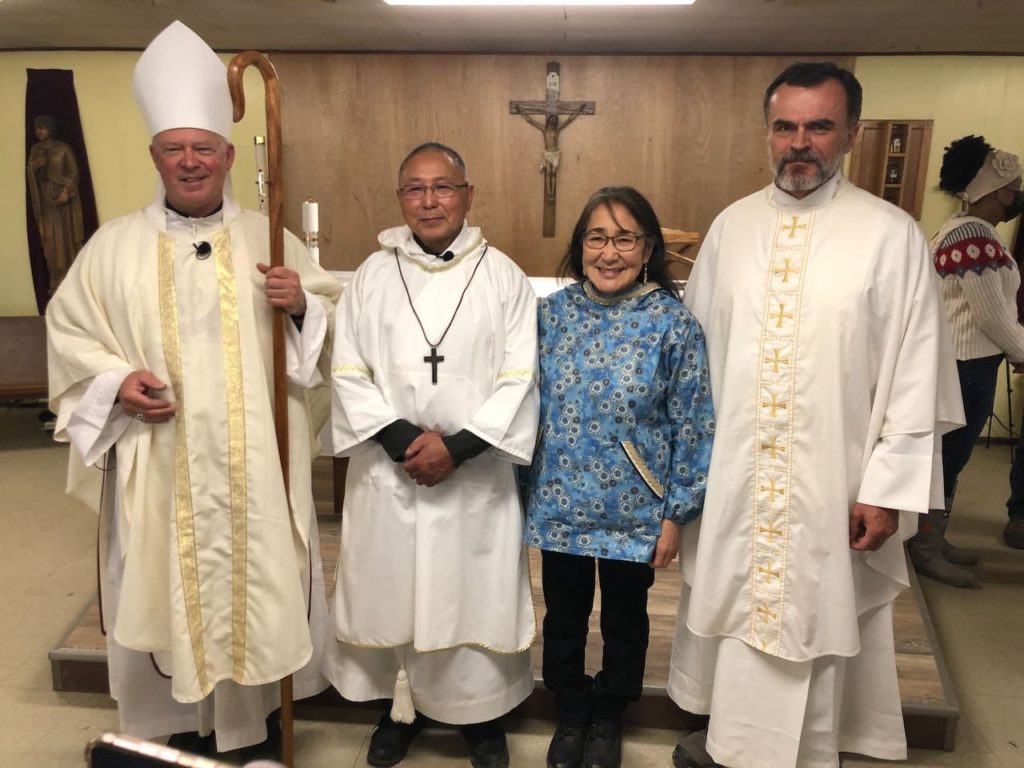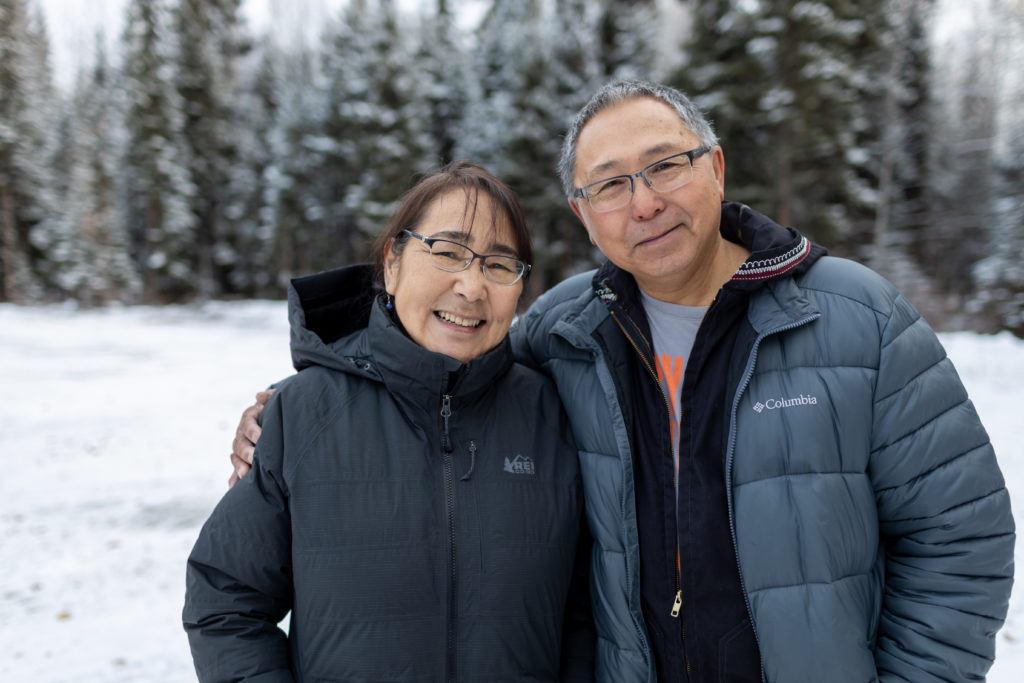Growing up in a small Native village along Alaska’s Bering Sea coast, Malora “Lala” Hunt remembers helping her mother read and sing hymnals translated into their Yup’ik language.
“I think the hymns that were translated into Yup’ik really helped her find God’s love and our salvation,” Hunt said. “That drew her to the Church even more and made her understand that there was a connection.”
Today, as co-director of the Diocese of Fairbanks’ Native Ministry Training Program, Hunt is carrying on her mission to help thousands of Native Alaskan Catholics experience the faith in their own language and culture. She took on the role with her husband, Deacon Dominic Hunt, pictured below alongside former Bishop of Fairbanks Chad Zielinski (left) and our 2021-2022 Lumen Christi Award recipient Father Stan Jaszek (right).

The couple was nominated for the Lumen Christi Award this year. They have spent decades serving in music ministry in their parish, and as they raised five children, Lala Hunt also served as a catechist and extraordinary minister of Communion.
She continues to live the same culture and subsistence lifestyle as those she is serving—obtaining food through hunting, fishing and foraging.
She lives on the western coast of Alaska in the tiny village of Emmonak.
Like most of the villages in the 400,000+ square miles of the Diocese of Fairbanks, it is inaccessible by road and has poor internet service. Despite this, she and her husband are building a connected network of homegrown Native Catholic leaders.
“Embrace who you are!”
The Native Ministry Training Program was established in the 1990s “by Native Catholics, for Native Catholics,” and has been supported by Catholic Extension Society for many years. It provides liturgical and pastoral training to deacons and lay leaders to take leadership of their parishes, which do not have resident pastors or staff. Just 10 priests are assigned to all 24 village churches in the Yukon-Kuskokwim Delta region, where the NMTP operates. Therefore, the role of the Native laity is essential to helping these mission churches thrive.
“We are helping our people to reclaim their sense of the sacred. We are so proud to be Yup’ik Catholics, and we want them to be proud, too,” Hunt said.
She added,
Embrace who you are! Our people have an innate spiritual connection to Creation.”
She is developing culturally contextualized catechetical materials and helping more parents feel confident in passing on the faith to their children as well as to others in their community.
“Yup’ik people are very humble and they often insist they wouldn’t do a good job teaching the faith,” Hunt said. “By having them teach their own kids, it opens up the possibility that they would be willing to teach the faith to others, too.”
She continued, “Long-term, we’re really building a loving home not just for ourselves, not just for our marriage and our family, but for all the Yup’ik people who need to know how much they are loved by the Lord.”

Lala Hunt’s story is part of our series on the courage and conviction of women in the Catholic Church. Read more here.
Catholic Extension Society works in solidarity with people to build up vibrant and transformative Catholic faith communities among the poor in the poorest regions of America. Please support our mission!


